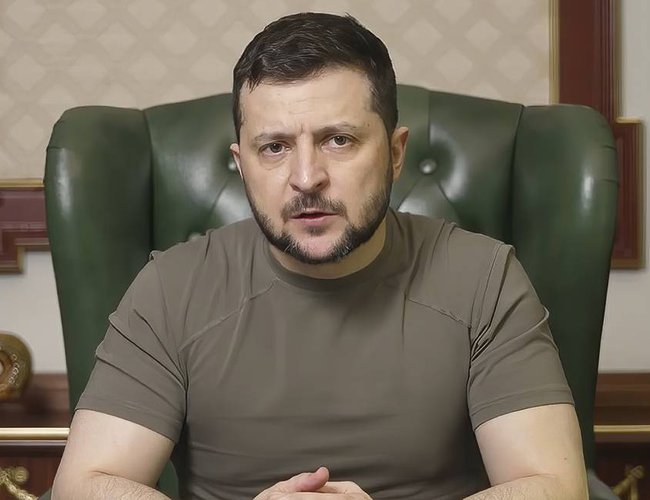
There are interesting parallels between Nepal’s first Premier and Commander-in-Chief Bhimsen Thapa (1806-1837) and Ukraine’s President and Commander-in-Chief Volodymyr Zelensky: both were imposed upon unjust war by their powerful neighbors. Even though the Anglo-Nepal war (1814-1816) and the ongoing Russia-Ukraine war have happened in about 207 years’ intermission, there are many parallels and lessons small states, in particular, can draw. One common trait these two great leaders demonstrated is their utter refusal to succumb to the unlawful demands of their powerful aggressor and unprecedented determination to fight back till the end.
Nepal under BhimsenThapa was expanding its territory and reached the Sutlej River in the west and the Teesta River in the east. British East India Company was also expanding its control over a vast Territory of the Indian subcontinent. After taking control of AbadhRajya adjoining Nepal, the British East India Company threatened Nepal to return Butwal- Sheoraj area claiming that it was a fiefdom of the former. Minor military skirmishes had begun in the border areas in the process. Thirty-nine-year-old BhimsenThapa refused to submit to the British threat of aggression. British Empire was the world’s superpower then.
British East India Company launched its massive military offensive against Nepal on 1 November 1814, from three major axis – Eastern, Central, and Western with Division plus force each. This war is popularly known as Anglo-Nepal War. The ambition of the British East India Company was to conquer the whole of South Asia, including Nepalese territory, and trade with Tibet. The British had numerical superiority and possessed a far more modern weapon system. Nepal lost about one-third (176,000 sq km) of its territory, including Garhwal, Kumaon, and Sikkim-Darjeeling. The Anglo-Nepal War ended by signing the treaty of Sugauli on 4 March 1816. Hence the war between Nepal and the British East India Company was not swift but rather a protracted one that stretched over a year. The delaying battle Ukraine has resorted to is upsetting the Russian plan to the latter's disadvantage.
Although Ukraine and Russia signed an agreement after the disbandment of the USSR in 1991, Russia never wholly accepted Ukraine’s independence. Putin had the ambition to restore areas under the Soviet Union, including the Ukrainian territory, and regain the lost status of world power. Zelensky refused to submit to the Russian demands. A country with the world's second most powerful military, Russia then launched a ‘Special Military Operation’ from three different directions against Ukraine – North, East, and South. Like the British East India Company, Russia now is vastly superior in numerical terms and modern weapons, including nuclear power. Russian military offensive launched on February 24, 2022, has seized about 119,000 sq kilometers (20 percent) of Ukrainian territories.
BhimsenThapa failed to muster external support against the British. That was a major strategic and diplomatic setback on the part of BhimsenThapa. Nepal’s request to provide support was turned down by Punjab, Gwalior, and Maratha states. On the other side, the Company received monetary and other kinds of support from several Indian states. Tibet and China also expressed their inability to support Nepal. On the contrary, Zelensky has been quite successful in garnering international support, western support including the US in particular. 141 countries including Nepal voted against Russia in the UN General Assembly deploring Russia’s aggression. Ukraine teaches a lesson that continuous diplomacy before and amidst war is as important as the war fighting to secure victory.
Zelensky is quite successful in garnering the support of Western countries, including the United States of America. Western countries have imposed harsh economic sanctions on Russia to weaken its war efforts. In both cases, the aggressors chose the time and place of attack, thereby keeping the defenders unable to concentrate their forces in the right place. With massive Western support in terms of modern weapons and equipment, money, and sanction on Russia, Ukraine has successfully resisted and now began to push back the aggressor in a spectacular way. It has already taken back some of its lost territories through counter-offensive. On the other hand, Nepal took back 9,207 sq km of lost Territory, known as NayaMuluk (new Territory), by supporting the British Empire with a massive military contribution in all wars and conflicts since the 1816 Sugauli Treaty.
Both these aggressors aimed to grab more territories, and bolster their economy and power. Nepal had valiantly fought against British India for its existence. Finally, Nepal succeeded to safeguard its existence, freedom, and identity despite the loss of some of its territory. Nepal now exists on the world map as an ever-independent country, and its people as proud Nepali. Likewise, Ukraine is experiencing a similar situation and hardship. Like Nepali Army and the people, the brave Ukrainian Army and the people under the dynamic leadership of 44-year-old President Zhelensky have saved Ukraine’s freedom and Ukrainian identity. Thanks to western support, Ukraine started reclaiming its lost territory through powerful counterattacks - which Nepal failed.
Interestingly, Britain, the aggressor then, is now against Russian aggression and actively supporting the threat recipient country Ukraine. Inheritor of British India and the world’s largest democracy, India now indirectly sides with the aggressor – Russia. Nepal, the recipient of British military aggression, voted against Russian aggression in the United Nations. Hence, Nepal has always stood against the aggressor and supported small sovereign states’ right to exist.
NATO Secretary General Jens Stoltenberg has recently said: “if Russia stops fighting, there will be peace, and if Ukraine stops fighting, it seizes to exist as an independent nation”. Had Nepal not fought a war of attrition for over a year, it wouldn’t have survived as an independent country. Therefore, small countries must fight bravely no matter how powerful the aggressor is and fight no matter what it takes, till the last man and the last inch of territory. Only such determination and willpower can attract international support to safeguard its legitimate cause, as enshrined in the United Nations Charter.
Had these two leaders shaken by the threats and looked at their self-interest, their countries would have been seized to exist as independent countries. Western countries have advised Zelensky to leave the country and establish a government in exile. BhimsenThapa was advised by some of his generals to make a compromise with the British-India to skip the war. Both of them took their unprecedented decision to fight back to the end. Uniquely both leaders have succeeded in saving their country’s existence through their leadership skills and determination.
In the beginning, no one believed that they could save their country’s existence from the powerful aggressor. They resorted to asymmetric warfare to cause delay, casualties, and attrition on the invader. Zelensky effectively used ambush, raids, human shields, Molotov cocktails, drones, smart missiles, improvised artificial obstacles such as the destruction of bridges, artificial tank/convoy obstacles, social media, cyber, etc. to offset Russia’s military plan. BhimsenThapa’s army fought against the British-India forces from successive forts to cause delay and maximum attrition. Another commonality was people’s support they have mustered uniquely.
Ukrainian leadership, its Armed Forces, and the people demonstrated unprecedented unity, patriotism, and will to fight for their soil and soul. It has encouraged western countries to stand by their side. They were united more than ever before and imposed economic sanctions on a scale the world had never seen before. The sanctions have crippled the Russian economy and gradually isolated it from most countries of the world, in the United Nations, and other international forums. The world lacked United Nations like world organization in the 19th Century to stop wars like the Anglo-Nepal war, but now the world has the UNO but is utterly unsuccessful in stopping the war in Ukraine. In his virtual address to the UN Security Council, Zelensky asked, “it should dissolve itself”. He further questioned: “Are you ready to close”? Both leaders, BhimsenThapa and Zelensky, saved their countries by rejecting expansionism and saving freedom.
Maj Gen Silwal (retd) is the author of the book “Nepal’s Instability Conundrum: Navigating Political, Military, Economic, and Diplomatic Landscape”.

















